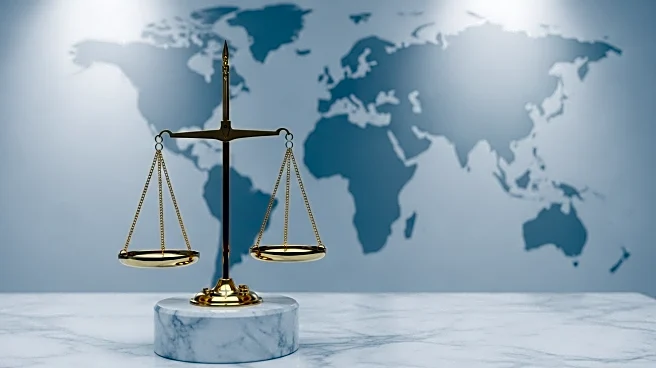What is the story about?
What's Happening?
President Donald Trump has extended his criticism of judges and prosecutors beyond U.S. borders, targeting foreign court systems. This includes sanctions against a Brazilian Supreme Court justice involved in the trial of former President Jair Bolsonaro. Trump's administration has also questioned the fairness of judicial proceedings in countries like France, Israel, and Britain. These actions challenge diplomatic norms and raise concerns about the U.S.'s role in promoting the rule of law globally. The administration's stance has been criticized for undermining national sovereignty and long-standing diplomatic traditions.
Why It's Important?
The U.S.'s criticism of foreign judicial systems marks a significant shift in its diplomatic approach, potentially affecting international relations and the perception of American leadership. By challenging the judicial processes of allied nations, the U.S. risks straining diplomatic ties and diminishing its influence in promoting democratic values. This approach may also impact the U.S.'s ability to collaborate on international legal matters and human rights issues. The administration's actions could lead to a reevaluation of the U.S.'s role in global governance and its commitment to upholding the rule of law.
Beyond the Headlines
The U.S.'s criticism of foreign courts raises ethical and legal questions about the balance between national sovereignty and international accountability. It highlights the tension between respecting a country's internal judicial processes and advocating for human rights and fair trials. This development may prompt discussions on the limits of diplomatic intervention and the responsibilities of global powers in supporting democratic institutions. The long-term implications could include shifts in international legal norms and the recalibration of diplomatic strategies to address complex global challenges.
















